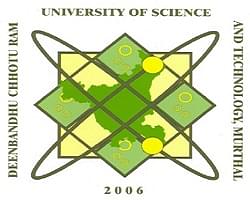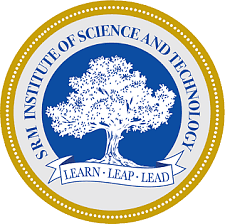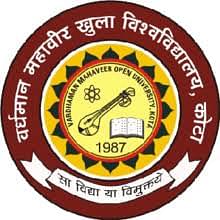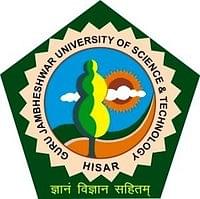Introduction about BSc in Chemistry
A Bachelor of
Science (BSc) in Chemistry is an undergraduate degree program at the best university in India designed to provide students with a comprehensive
understanding of the fundamental principles governing the behavior,
composition, and properties of matter. This program explores the structure,
composition, and transformation of substances at the molecular and atomic
levels, offering insights into the diverse range of chemical phenomena observed
in the natural world and in laboratory settings.
In a BSc in
Chemistry program, students study a wide range of topics covering organic
chemistry, inorganic chemistry, physical chemistry, analytical chemistry, and
biochemistry. They learn to apply theoretical concepts, experimental
techniques, and mathematical tools to analyze and solve complex chemical
problems, gaining practical skills in laboratory work, data analysis, and
scientific inquiry.
Throughout their
studies, students engage in hands-on laboratory work, where they conduct
experiments to explore chemical reactions, synthesize new compounds, analyze
substances, and characterize materials. They learn to use advanced laboratory
equipment and instrumentation, such as spectrophotometers, chromatographs, mass
spectrometers, and nuclear magnetic resonance (NMR) spectroscopy, to
investigate chemical properties and processes.
In addition to core
chemistry courses, BSc in Chemistry programs often include elective courses
that allow students to specialize in specific areas of interest, such as
medicinal chemistry, environmental chemistry, materials chemistry, or polymer
chemistry. These electives enable students to tailor their education to suit
their interests and career aspirations.
Upon completion of
a BSc in Chemistry, graduates are well-prepared for a variety of career paths.
Many pursue further studies in chemistry or related fields at the graduate
level, leading to advanced degrees such as Master of Science (MSc) or Doctor of
Philosophy (PhD). Others find employment in industries such as pharmaceuticals,
biotechnology, petrochemicals, environmental science, food and beverage,
forensics, and materials science, where strong analytical and problem-solving
skills are highly valued.
Overall, a BSc in
Chemistry offers students a fascinating exploration into the world of molecules
and compounds, equipping them with the knowledge, skills, and passion to pursue
careers at the forefront of scientific discovery, innovation, and technological
advancement.
What is eligibility for admission at BSc in
Chemistry
The eligibility
criteria for admission to a Bachelor of Science (BSc) in Chemistry program can
vary depending on the university, country, and specific program requirements.
However, there are some common eligibility criteria that applicants typically
need to meet:
·
Educational
Qualifications: Most
universities require applicants to have completed their secondary education or
equivalent qualification, such as high school or its equivalent (e.g.,
A-levels, IB Diploma). Applicants should have a strong academic background in
science subjects, particularly in chemistry, mathematics, and physics.
·
Minimum
Grade Point Average (GPA):
Institutions may set a minimum GPA requirement for admission. This GPA
threshold can vary depending on the competitiveness of the program and the
institution's standards.
·
Prerequisite
Courses: Some BSc in
Chemistry programs may require applicants to have completed specific
prerequisite courses in chemistry, mathematics, and other related subjects
during their secondary education. These prerequisite courses may include topics
such as organic chemistry, inorganic chemistry, calculus, algebra, and physics.
·
Standardized
Tests: In some cases,
universities may require applicants to submit scores from standardized tests
such as the SAT or ACT (in the United States) or the A-levels (in the United
Kingdom) as part of the admission process. These tests help assess the
applicant's academic aptitude and readiness for university-level studies.
·
Language
Proficiency: For
international students or non-native English speakers, demonstrating
proficiency in the language of instruction (usually English) may be necessary.
This requirement is typically fulfilled by submitting scores from standardized
English language proficiency tests such as the TOEFL or IELTS.
·
Application
Materials: Applicants are
usually required to submit an application form along with supporting documents,
which may include transcripts, letters of recommendation, a personal statement
or essay, and any other required documentation specified by the institution.
It's essential for
prospective students to carefully review the admission requirements of the
specific universities and programs they are interested in, as these
requirements can vary. Additionally, meeting the minimum eligibility criteria
does not guarantee admission, as admission decisions may also consider factors
such as the applicant's personal statement, letters of recommendation,
extracurricular activities, and other qualitative aspects.
What is admission process for BSc in Chemistry ?
The admission
process at the best affordable Bachelor of Science (BSc) in Chemistry in India
program typically involves several steps, which may vary depending on the
institution and country. Here is a general overview of the admission process:
Research and
Selection of Universities:
Prospective students should research universities offering BSc programs in
Chemistry and identify those that best align with their academic interests,
career goals, and personal preferences. Factors to consider include the
university's reputation, program curriculum, faculty expertise, location,
facilities, and financial considerations.
Review Admission
Requirements: Applicants
should carefully review the admission requirements for each university and
program they are interested in. These requirements typically include
educational qualifications, minimum GPA, prerequisite courses, standardized
test scores (if applicable), language proficiency, and submission of
application materials.
Prepare Application
Materials: Applicants need
to gather and prepare all required application materials, which may include:
Completed
application form
Official
transcripts or academic records from secondary school or previous higher
education institutions
Standardized test
scores (e.g., SAT, ACT, A-levels)
English language
proficiency test scores (e.g., TOEFL, IELTS) for non-native English speakers
Letters of
recommendation from teachers, counselors, or other individuals who can speak to
the applicant's academic abilities and character
Personal statement
or essay explaining the applicant's academic and career goals, relevant
experiences, and reasons for choosing the program
o Submit Application: Applicants must submit their completed
application form and all required documents by the specified deadline. Some
universities may allow online submission of applications, while others may
require hard copies to be mailed.
o Application Review: Once the application deadline has passed,
the university's admissions committee will review all submitted applications.
They will evaluate the applicant's academic qualifications, test scores,
letters of recommendation, personal statement, and any other relevant factors.
o Notification of Admission Decision: After reviewing applications, the
university will notify applicants of their admission decision. This
notification may come in the form of an acceptance letter, email, or through an
online portal. Accepted students may also receive information about enrollment
procedures, financial aid, housing options, and other important details.
o Enrollment and Confirmation: Accepted students must follow the
university's instructions to confirm their enrollment by submitting any
required enrollment forms and deposits by the specified deadline. This process
secures their spot in the BSc in Chemistry program.
It's essential for
applicants to adhere to all application deadlines and requirements and to stay
informed about the admission process at their chosen universities. If they have
any questions or need assistance, they can reach out to the university's admissions
office for guidance and support.
What is syllabus for BSc in Chemistry?
The syllabus at top affordable Bachelor of Science (BSc) in Chemistry college varies depending on the university and
country. However, here is a general overview of the typical topics covered in a
BSc Chemistry curriculum:
![]() Foundation Courses:
Foundation Courses:
![]() General Chemistry: Atomic Structure,
Chemical Bonding, Stoichiometry, Chemical Equilibrium, Acid-Base Chemistry,
Redox Reactions, Thermodynamics
General Chemistry: Atomic Structure,
Chemical Bonding, Stoichiometry, Chemical Equilibrium, Acid-Base Chemistry,
Redox Reactions, Thermodynamics
![]() Organic Chemistry: Structure and Bonding,
Functional Groups, Nomenclature, Stereochemistry, Reaction Mechanisms, Organic
Synthesis
Organic Chemistry: Structure and Bonding,
Functional Groups, Nomenclature, Stereochemistry, Reaction Mechanisms, Organic
Synthesis
![]() Inorganic Chemistry: Periodic Trends,
Chemical Periodicity, Coordination Chemistry, Main Group Chemistry, Transition
Metal Chemistry
Inorganic Chemistry: Periodic Trends,
Chemical Periodicity, Coordination Chemistry, Main Group Chemistry, Transition
Metal Chemistry
![]() Analytical Chemistry:
Analytical Chemistry:
![]() Analytical Techniques: Spectroscopy (UV-Vis,
IR, NMR), Chromatography (GC, HPLC), Electrochemistry, Mass Spectrometry
Analytical Techniques: Spectroscopy (UV-Vis,
IR, NMR), Chromatography (GC, HPLC), Electrochemistry, Mass Spectrometry
![]() Chemical Analysis: Quantitative Analysis,
Qualitative Analysis, Calibration Methods, Data Analysis
Chemical Analysis: Quantitative Analysis,
Qualitative Analysis, Calibration Methods, Data Analysis
![]() Physical Chemistry:
Physical Chemistry:
![]() Thermodynamics: Laws of Thermodynamics,
Entropy, Free Energy, Chemical Kinetics, Reaction Rates, Rate Laws
Thermodynamics: Laws of Thermodynamics,
Entropy, Free Energy, Chemical Kinetics, Reaction Rates, Rate Laws
![]() Quantum Chemistry: Quantum Mechanics, Wave
Functions, Molecular Orbitals, Molecular Spectroscopy
Quantum Chemistry: Quantum Mechanics, Wave
Functions, Molecular Orbitals, Molecular Spectroscopy
![]() Statistical Mechanics: Distribution
Functions, Partition Functions, Boltzmann Distribution, Ideal Gases
Statistical Mechanics: Distribution
Functions, Partition Functions, Boltzmann Distribution, Ideal Gases
![]() Inorganic Chemistry:
Inorganic Chemistry:
![]() Main Group Chemistry: Periodicity, Bonding, Reactions
of Elements in Groups 1, 2, 13-18
Main Group Chemistry: Periodicity, Bonding, Reactions
of Elements in Groups 1, 2, 13-18
![]() Transition Metal Chemistry: Coordination
Compounds, Ligand Field Theory, Organometallic Chemistry, Catalysis
Transition Metal Chemistry: Coordination
Compounds, Ligand Field Theory, Organometallic Chemistry, Catalysis
![]() Solid State Chemistry: Crystal Structure,
Lattice Energy, Crystal Defects, Band Theory
Solid State Chemistry: Crystal Structure,
Lattice Energy, Crystal Defects, Band Theory
![]() Organic Chemistry:
Organic Chemistry:
![]() Advanced Organic Chemistry: Reaction
Mechanisms, Stereochemistry, Organic Synthesis, Natural Products Chemistry,
Heterocyclic Chemistry
Advanced Organic Chemistry: Reaction
Mechanisms, Stereochemistry, Organic Synthesis, Natural Products Chemistry,
Heterocyclic Chemistry
![]() Bioorganic Chemistry: Biomolecules
(Proteins, Nucleic Acids, Carbohydrates, Lipids), Enzyme Kinetics, Metabolic
Pathways
Bioorganic Chemistry: Biomolecules
(Proteins, Nucleic Acids, Carbohydrates, Lipids), Enzyme Kinetics, Metabolic
Pathways
![]() Electives and Specializations:
Electives and Specializations:
![]() Environmental Chemistry: Pollution Control,
Green Chemistry, Environmental Analysis
Environmental Chemistry: Pollution Control,
Green Chemistry, Environmental Analysis
![]() Medicinal Chemistry: Drug Design and
Development, Pharmacology, Pharmaceutical Chemistry
Medicinal Chemistry: Drug Design and
Development, Pharmacology, Pharmaceutical Chemistry
![]() Polymer Chemistry: Polymerization Reactions,
Polymer Characterization, Polymer Applications
Polymer Chemistry: Polymerization Reactions,
Polymer Characterization, Polymer Applications
![]() Laboratory Work:
Laboratory Work:
![]() Practical Chemistry: Hands-on laboratory
experiments to reinforce theoretical concepts, develop practical skills, and
perform chemical analyses.
Practical Chemistry: Hands-on laboratory
experiments to reinforce theoretical concepts, develop practical skills, and
perform chemical analyses.
![]() Capstone Project or Thesis:
Capstone Project or Thesis:
![]() Some BSc Chemistry programs require students
to complete a capstone project or thesis, where they apply their knowledge and
skills to conduct independent research or solve a real-world problem under the
supervision of a faculty member.
Some BSc Chemistry programs require students
to complete a capstone project or thesis, where they apply their knowledge and
skills to conduct independent research or solve a real-world problem under the
supervision of a faculty member.
This outline
provides a broad overview of the typical syllabus for a BSc in Chemistry
program. However, students should consult the specific curriculum and course
offerings of the university they are interested in for detailed information on
course requirements, prerequisites, and electives. Additionally, the syllabus
may be subject to updates and changes over time to reflect advancements in the
field and the evolving needs of students and industries.
What is scope after BSc in Chemistry ?
The scope after
completing a Bachelor of Science (BSc) in Chemistry from the top college in India is diverse, offering numerous opportunities for graduates across
various industries and sectors. Here are some potential career paths and
further academic options for BSc Chemistry graduates:
![]() Higher Education: Many graduates choose to pursue further
education by enrolling in postgraduate programs such as Master of Science (MSc)
or Doctor of Philosophy (PhD) in Chemistry or related fields. Advanced degrees
can lead to careers in academia, research, or specialized areas such as organic
chemistry, inorganic chemistry, analytical chemistry, physical chemistry, or
biochemistry.
Higher Education: Many graduates choose to pursue further
education by enrolling in postgraduate programs such as Master of Science (MSc)
or Doctor of Philosophy (PhD) in Chemistry or related fields. Advanced degrees
can lead to careers in academia, research, or specialized areas such as organic
chemistry, inorganic chemistry, analytical chemistry, physical chemistry, or
biochemistry.
![]() Research and Development: Chemists are employed in research
institutions, government agencies, and private companies to conduct research in
areas such as pharmaceuticals, biotechnology, materials science, environmental
science, food and beverage, and energy. They work on developing new compounds,
materials, drugs, and technologies, and solving complex chemical problems.
Research and Development: Chemists are employed in research
institutions, government agencies, and private companies to conduct research in
areas such as pharmaceuticals, biotechnology, materials science, environmental
science, food and beverage, and energy. They work on developing new compounds,
materials, drugs, and technologies, and solving complex chemical problems.
![]() Pharmaceutical and Biotechnology
Industries: Chemists play
crucial roles in the pharmaceutical and biotechnology industries, where they
work on drug discovery, development, formulation, and quality control. They may
work in research and development, production, regulatory affairs, or quality
assurance roles.
Pharmaceutical and Biotechnology
Industries: Chemists play
crucial roles in the pharmaceutical and biotechnology industries, where they
work on drug discovery, development, formulation, and quality control. They may
work in research and development, production, regulatory affairs, or quality
assurance roles.
![]() Chemical Manufacturing and Process
Industries: Chemists are
employed in chemical manufacturing and process industries to develop and
optimize chemical processes, design new products, and ensure product quality
and safety. They work in areas such as petrochemicals, polymers, agrochemicals,
specialty chemicals, and fine chemicals.
Chemical Manufacturing and Process
Industries: Chemists are
employed in chemical manufacturing and process industries to develop and
optimize chemical processes, design new products, and ensure product quality
and safety. They work in areas such as petrochemicals, polymers, agrochemicals,
specialty chemicals, and fine chemicals.
![]() Environmental and Analytical Chemistry: Chemists work in environmental science and
analytical chemistry to analyze and monitor environmental pollutants, develop
methods for pollution control and remediation, and ensure compliance with
environmental regulations. They may work in environmental consulting firms,
government agencies, or research institutions.
Environmental and Analytical Chemistry: Chemists work in environmental science and
analytical chemistry to analyze and monitor environmental pollutants, develop
methods for pollution control and remediation, and ensure compliance with
environmental regulations. They may work in environmental consulting firms,
government agencies, or research institutions.
![]() Food and Beverage Industry: Chemists are employed in the food and
beverage industry to ensure the safety, quality, and nutritional value of food
products. They may work in areas such as food analysis, product development,
quality control, and regulatory compliance.
Food and Beverage Industry: Chemists are employed in the food and
beverage industry to ensure the safety, quality, and nutritional value of food
products. They may work in areas such as food analysis, product development,
quality control, and regulatory compliance.
![]() Forensic Science: Chemists work in forensic science to
analyze evidence, identify substances, and provide expert testimony in criminal
investigations and legal proceedings. They may specialize in areas such as
forensic chemistry, toxicology, or trace evidence analysis.
Forensic Science: Chemists work in forensic science to
analyze evidence, identify substances, and provide expert testimony in criminal
investigations and legal proceedings. They may specialize in areas such as
forensic chemistry, toxicology, or trace evidence analysis.
![]() Education and Teaching: Graduates with a BSc in Chemistry can
pursue careers in education as chemistry teachers or lecturers at schools,
colleges, and universities. They play a crucial role in teaching and inspiring
the next generation of scientists and researchers.
Education and Teaching: Graduates with a BSc in Chemistry can
pursue careers in education as chemistry teachers or lecturers at schools,
colleges, and universities. They play a crucial role in teaching and inspiring
the next generation of scientists and researchers.
Overall, the scope
after completing a BSc in Chemistry is broad and varied, with opportunities
available in academia, research, industry, government, healthcare, and
education. Graduates with strong analytical, problem-solving, and communication
skills are well-equipped to pursue rewarding careers and make significant
contributions to society through their expertise in chemistry.












